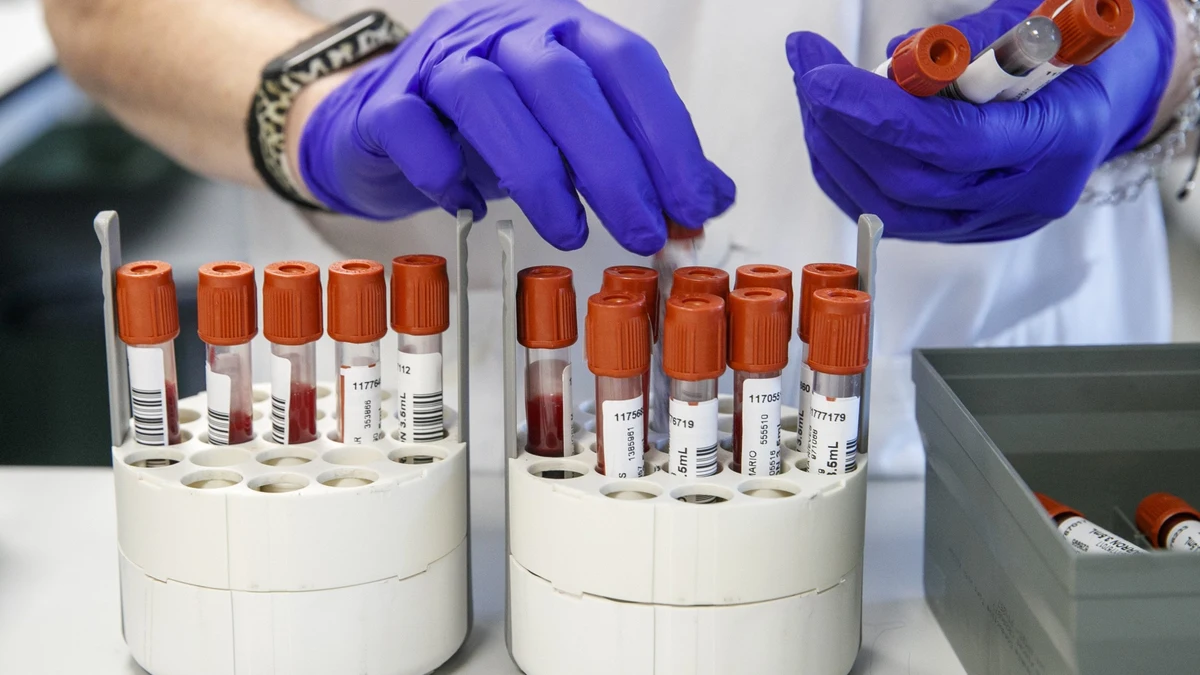In less than a week, captured by the global media and glowing against the backdrop of the Eiffel Tower, Americans will know when the Olympic races begin – sprinters at their marks sizing each other up, and waiting for the sound of the starter’s gun.
Other races begin with less fanfare – sometimes marked by a lunar capsule’s quiet return from the dark side of the Moon.
Despite China National Space Administration’s admission of a new space race against the United States, the race really began in May, when the Chinese Chang’e-6 probe returned to Earth with first-of-its-kind samples from the dark side of the Moon. America’s leadership in science and technological advancement must be sustained and we must take immediate steps to maintain our edge.
As a newly elected member of Congress, it doesn’t take years of experience in Washington to see that our nation must meet this clarion call to compete – not just for the wonders of scientific research advancement, but equally as important, for the economic, technological, and military leading edge that the technological competition to the Moon and Mars calls on us to win.
That necessary leadership can be found in the House – where my bipartisan colleagues on the House Science, Space, and Technology Committee, under the leadership of Chairman Frank Lucas and Space Subcommittee Chairman Brian Babin, approved NASA reauthorization legislation unanimously. This bill provides clarity of mission when it comes to supporting and investing in the Artemis Program, which, through the assignment of duties both of NASA but also America’s commercial space innovators, is scheduled to land manned missions back to the Moon by the end of this decade.
But rather than clearing the track like the Chinese government has done for its state-owned space companies, our government continues to leave hurdles on the track for our commercial space operators – who are not only Artemis partners, but have also been assigned sole and essential roles that NASA cannot execute on its own. Many of these hurdles can be traced back to a Clinton-era dictate that places commercial space operations in the bureaucratic house of the Federal Aviation Administration (FAA).
Paperwork and permitting delays have become the rule, not the exception, to allowing commercial space launches from occurring in a timely manner. Just like repeated practice followed by meticulous necessary adjustments followed by more practice all before the big race, a greater cadence of launches yields more payloads into space and more data to improve every successive launch, not just for NASA but at commercial spaceports and supporting military installations in places like Mojave and Vandenberg AFB in California.
Leading the way on America’s leadership position in aerospace innovation is not new to California. From Brigadier General Chuck Yeager breaking the sound barrier, Dick Rutan and Jeana Yeager piloting the Voyager aircraft in the first non-stop, non-refueled flight around the world, SpaceShipOne’s launch and return from space, SpaceX’s rocket launches across the night sky to Stratolaunch Systems’ current development of hypersonic flight technology, California has a rich history in making flight history. This tremendous legacy should and will chart our path into the future.
But if our government won’t administratively act to put regulatory relief ahead of rolls of red tape in this new space race, I believe Congress must act – and quickly. Here’s how the House and Senate, united and bipartisan, can help our nation spring us back against Chinese competition:
Pass the NASA reauthorization legislation, and pass a longer-term reauthorization early next year. This legislation acts as a blueprint of support, where needed resources can follow to help expedite and measure progress among both public and private partners and their roles and responsibilities to keeping us on the Artemis timeline.
Immediately pass an extension – of at least 7 years – of the commercial space learning period. An extension – supported by both Republicans and Democrats – would ensure FAA does not further hamstring innovation, advances and growth with new commercial human spaceflight regulations.
Pass the bipartisan proposal by Reps. Mike Garcia and Haley Stevens to make commonsense permitting and paperwork reforms so that commercial space innovators no longer have to be grounded by duplicative and unnecessary permitting delays while watching Chinese competitor spacecraft launch into the sky.
Make clear that America refuses to fall behind China by finally requiring the inevitable reform decades-long in the making: moving commercial space regulation out of the bureaucratic FAA, whose preoccupation with its primary burdens of today’s aviation challenges makes it no longer the right agency to regulate an industry marked with entrepreneurship and real-time advances.
A space race where we rely on the scientific and technological wherewithal of NASA’s scientists, engineers and experience, coupled with the entrepreneurship, nimbleness and dedication of our commercial spaceflight partners, will easily be won, given the reliance that the Chinese Communist Party has on the familiar levers of rigid state-sponsored action of the old Soviet Union.
But when we fail to even get off our mark because of a culture of bureaucratic delay while other countries speeds by is unacceptable. America’s willingness to rise to the occasion and meet any challenge is unparalleled, and it’s time that we recognize the moment that is before us and act to ensure the United States wins the 21st century space race that is underway.
Vince Fong represents California’s 20th congressional district.






























